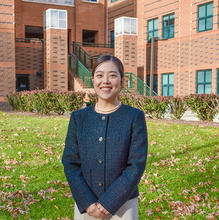- July 2, 2025
It’s one thing to be a force for good behind the scenes. Having consumers reward you for it, however, depends upon a unique combination of elements.
- June 16, 2025
A Costello College of Business professor’s 2019 academic paper was one of the first to analyze the unique market features of the federal government contracting ecosystem.
- November 25, 2024
A George Mason marketing professor is using AI to help organizations gain deeper insights into consumers based on very little information
- October 8, 2024
Not only are retailers failing to retain and redirect business from shuttered physical locations, but their performance elsewhere also suffers as a result.
- September 18, 2023
When government contractors merge, comparing their customers can predict a lot about how investors will respond to the deal.
- May 30, 2023
Not all pharmaceutical companies are equally well-suited to surf the sea change that’s happening in healthcare.
- May 22, 2023
How can you convince someone to give you their time or money free of charge? Focus on the head, not the heart.
- March 28, 2023
There’s no one-size-fits-all solution to growing a franchise business. But stock market reactions to companies’ strategic moves can give you more than a clue.
- March 9, 2023
The moment a brand publicizes its good works, it’s at risk of seeming cynical. A Mason professor offers research-based advice on how to generate lasting brand value from sustainability.
- December 8, 2022
Marketing professor Tarun Kushwaha’s recent research finds that the effectiveness of brands’ growth strategies can be correlated with the state of the economy. Analyzing 17 years of data on U.K. brands, Kushwaha concludes that brands that prioritize assortment and wider distribution are in the best position to weather the ups and downs of the macroeconomic cycle.








